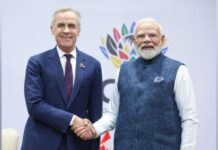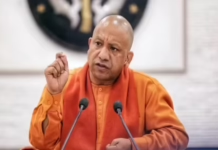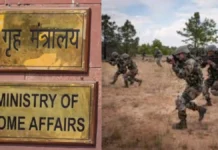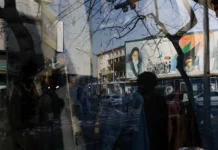 GURGAON: Former Prime Minister I K Gujral, who headed a rickety coalition government in the late 1990s, has died after a brief illness.
GURGAON: Former Prime Minister I K Gujral, who headed a rickety coalition government in the late 1990s, has died after a brief illness.
Gujral, 92, breathed his last at 3.27 PM in a private hospital after a multi-organ failure. He was admitted to the hospital on November 19 with a lung infection, family sources said.
The former Prime Minister, who was ventilator support, had been unwell for sometime. He was on dialysis for over a year and suffered a serious chest infection some days ago.
Gujral, who migrated from Pakistan after partition, rose to become the Prime Minister with a big slice of luck after he came up through the ranks – starting as Vice President in NDMC in the ’50s to later become a Union Minister and then India’s Ambassador to the USSR. . Gujral, an intellectual who propounded the ‘Gujral Doctrine’ of five principles for maintaining good neighborly relations, left the Congress to join the Janata Dal in the late-1980s.
He became Minister of External Affairs in the V P Singh-led National Front government in 1989. As the External Affairs Minister he handled the fallout of the Kuwait crisis following Iraqi invasion that displaced thousands of Indians.
Gujral had a second stint as External Affairs Minister in the United Front government under H D Deve Gowda, whom he later replaced as Prime Minister after the Congress withdrew support in the summer of 1997.
He emerged as the consensus candidate after serious differences developed among the UF leaders including Lalu Prasad Yadav, Mulayam Singh and others as to who will become the Prime Minister.
It was another matter that his government survived only for a few months as Congress again became restive in the wake of Jain Commission report on Rajiv Gandhi’s assassination. Born on December 4, 1919 in Jhelum town now in Pakistan, Gujral belonged to a family of freedom fighters and had actively participated in the freedom struggle at a young age and was jailed in 1942 during the Quit India Movement.
Educated at DAV College, Haily College of Commerce and Forman Christian College, Lahore (now in Pakistan), Gujral took active part in student politics.
He became a member of the Rajya Sabha in April 1964 and was considered part of the ‘coterie’ that helped Indira Gandhi become Prime Minister in 1966.
He was the Information and Broadcasting Minister when Emergency was imposed (on June 25, 1975), which brought in arbitrary press censorship, but was soon removed.
Gujral was a Rajya Sabha Member twice between 1964 and 1976, a member of the Lok Sabha from 1989 to 1991. With Lalu Prasad’s help, he became a member of Rajya Sabha in 1992 after his election from Patna Lok Sabha constituency was countermanded.
He was re-elected to Lok Sabha in 1998 from Jalandhar in Punjab as an independent with help from Akali Dal.
A controversial decision of his government was its recommendation for President’s rule in Uttar Pradesh in 1997, which the then President K R Narayanan refused to sign and sent it back to the government for reconsideration.
His wife, Sheila, who died in 2011, was a poet and author and his brother Satish Gujral is a prominent painter and architect. He leaves behind two sons, one of whom Naresh Gujral is a Rajya Sabha MP and now an Akali Dal leader. -PTI






